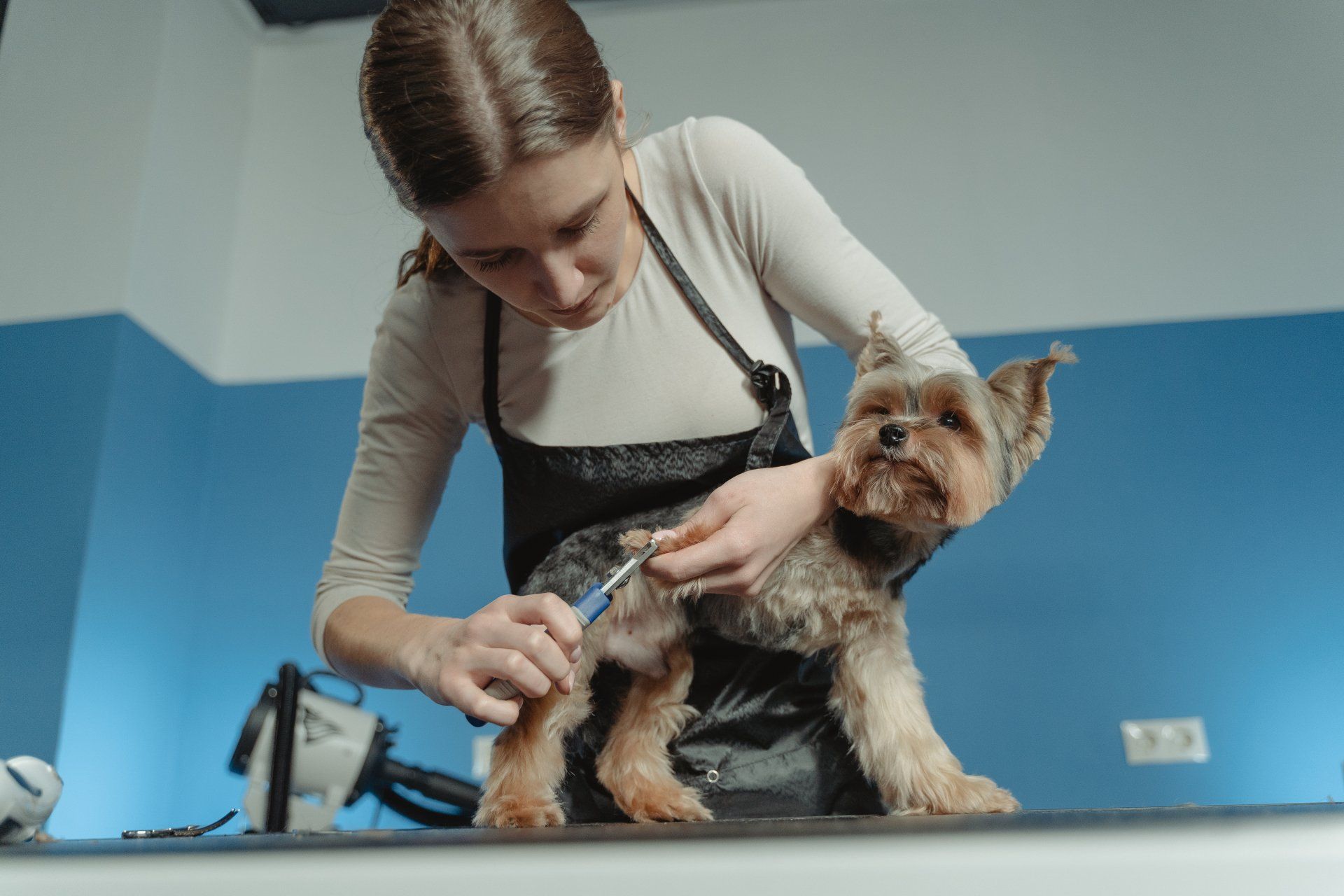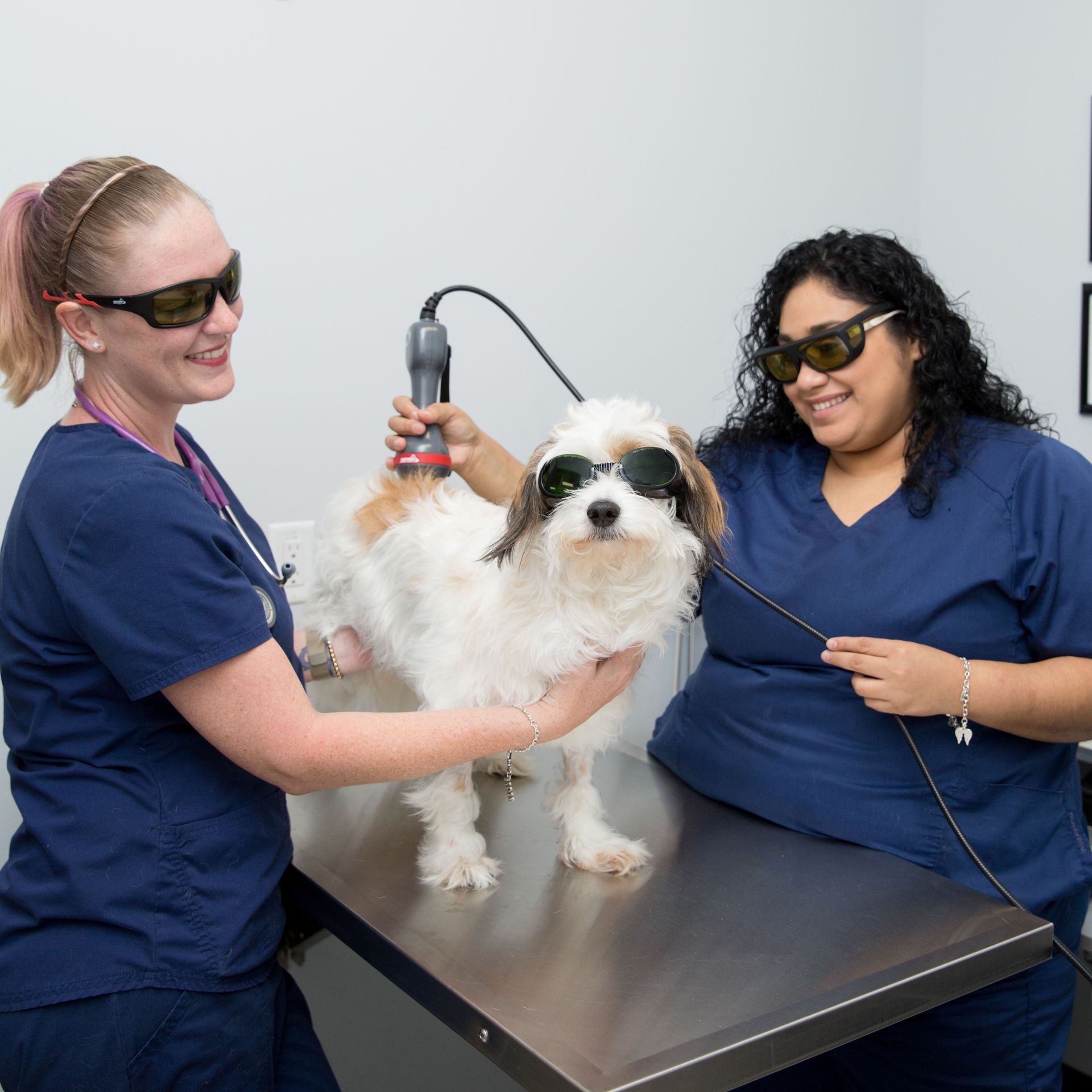Most Common Pet Emergencies in Texas: What Every Pet Owner Should Know
Most Common Pet Emergencies in Texas: What Every Pet Owner Should Know
Pet emergencies can be stressful and overwhelming, but being prepared can make all the difference. At A Couple of Vets, we see a variety of emergencies in our clinic located in Spring, TX, serving pet owners from Spring, Tomball, and The Woodlands. This blog post will help you understand the most common pet emergencies, how they happen, and how you can prevent them. We'll also cover urgent signs that indicate your pet needs immediate emergency care.
Most Common Pet Emergencies in Texas
- Heatstroke:
- How It Happens: Texas's hot climate can lead to heatstroke, especially in dogs. Pets left in hot cars, overexerted during exercise, or without access to shade and water are at high risk.
- Prevention: Always provide your pet with plenty of water and a cool, shaded area. Avoid exercising your pet during the hottest parts of the day and never leave them in a parked car.
- Urgent Signs: Labored breathing, excessive panting, drooling, vomiting, diarrhea, and lethargy.
- Toxic Ingestion:
- How It Happens: Pets can accidentally ingest toxic substances like chocolate, xylitol (found in sugar-free gum), antifreeze, and certain plants. These can cause severe health issues.
- Prevention: Keep toxic substances out of reach and educate yourself on common household toxins. Use pet-safe products and plants.
- Urgent Signs: Vomiting, diarrhea, drooling, seizures, and loss of consciousness.
- Trauma:
- How It Happens: Trauma can result from car accidents, falls, or fights with other animals. These incidents can cause injuries ranging from minor cuts to severe internal damage.
- Prevention: Keep your pet on a leash when outside, use a secure fence, and supervise interactions with other animals.
- Urgent Signs: Difficulty walking, bleeding, swelling, and signs of pain or distress.
- Bloat (Gastric Dilatation-Volvulus):
- How It Happens: Bloat is a life-threatening condition that occurs when a dog's stomach fills with gas and twists. It is more common in large, deep-chested breeds.
- Prevention: Feed your dog smaller, more frequent meals and avoid vigorous exercise immediately after eating. Use a slow-feeder bowl to prevent rapid eating.
- Urgent Signs: Distended abdomen, restlessness, drooling, and attempts to vomit without success.
- Urinary Blockage:
- How It Happens: Male cats are particularly prone to urinary blockages, which can be caused by urinary crystals, stones, or inflammation. This condition can also occur in dogs.
- Prevention: Ensure your pet has access to clean, fresh water and a balanced diet. Regular veterinary check-ups can help detect early signs of urinary issues.
- Urgent Signs: Straining to urinate, frequent trips to the litter box without producing urine, crying out in pain, and lethargy.
- Allergic Reactions:
- How It Happens: Pets can have allergic reactions to insect bites, certain foods, or medications. These reactions can range from mild to severe.
- Prevention: Identify and avoid known allergens. Use flea and tick prevention products and consult your vet about hypoallergenic diets if necessary.
- Urgent Signs: Swelling of the face, hives, difficulty breathing, and collapse.
How to Prevent Pet Emergencies
- Regular Veterinary Check-Ups:
- Regular visits to the vet can help identify and address potential health issues before they become emergencies. This is especially important for older pets and those with chronic conditions.
- Pet-Proof Your Home:
- Ensure that all toxic substances, sharp objects, and small items that can be swallowed are out of reach. Secure cabinets and use child-proof locks if necessary.
- Supervise Outdoor Activities:
- Always supervise your pet when they are outside. Use a secure fence and keep them on a leash to prevent accidents and encounters with other animals.
- Provide a Safe Environment:
- Create a safe and comfortable environment for your pet. This includes providing a cool, shaded area during hot weather and a warm, cozy space during cold weather.
- Educate Yourself:
- Learn about common pet emergencies and the signs to watch for. Being informed can help you act quickly and effectively in an emergency.
Urgent Signs That Your Pet Needs Immediate Emergency Care
If you notice any of the following signs, it is crucial to seek immediate veterinary care:
- Labored Breathing: Difficulty breathing, wheezing, or rapid, shallow breaths.
- Seizures: Uncontrolled shaking, twitching, or loss of consciousness.
- Severe Vomiting or Diarrhea: Persistent or projectile vomiting, or diarrhea with blood.
- Bleeding: Excessive bleeding that does not stop after a few minutes.
- Collapse: Sudden weakness, inability to stand, or collapse.
- Distended Abdomen: A swollen or hard abdomen, especially in dogs.
- Straining to Urinate: Frequent attempts to urinate without success, especially in male cats.
Take Action to Keep Your Pet Safe
Pet emergencies can happen at any time, but being prepared and proactive can help you avoid many common issues. If you have any concerns about your pet's health or need immediate assistance, call A Couple of Vets at 832-930-7711 during business hours. For after-hours emergencies, Blue Pearl Pet Hospital is available at 832-616-5000. Your pet's health and safety are our top priority, and we are here to support you every step of the way.




